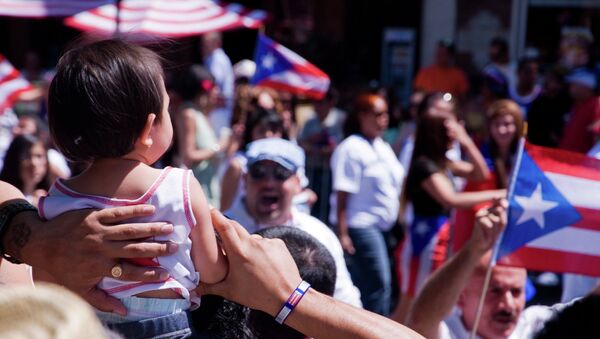— geo del (@delgeo1) February 10, 2015
Senator Gilberto Rodriguez explained in a statement Monday that the goal is to make parents and children re-evaluate their lifestyle choices.
“Here in 'La Isla del Encanto' there are no consequences,” he said, according to El Nuevo Día. “The obese child is a health problem that can become a financial burden because the child can develop diabetes, heart ailments and other diseases.”
Many physicians, including the president of Puerto Rico’s chapter of the American Academy of Pediatrics, fully oppose the law.
— Astrid Almodovar, MD (@doctorastrid) February 10, 2015
“It’s not the right way to address this problem,” Ricardo Fontanet, president of a local chapter of the American Academy of Pediatrics, told El Nuevo Dia. “It’s going to bring more problems because there are children who are overweight due to underlying medical issues and genetic factors.”
If approved, the law would make public school teachers alert counselors and social works of potential cases of obesity. Health department officials would then meet with the child’s parents to establish whether medical or dietary issues are at the root of the child’s condition.
Officials would also create a diet-and-exercise plan for the family that would include monthly visits to ensure that it is followed.
After a six month period, the Health Department officials would assess the child’s progress. If after a year the child has not lost weight, the parents would face between a $500 dollar and $800 dollar fine.
Nutritionist Milly Garcia believes there are better ways to address the matter of childhood obesity. She sides with critics who believe the proposal to be draconian and unfair.
“The fact that these childhood obesity cases are rooted in lifestyle does not give one the right to step into people’s private spaces. This is not abuse, it’s a disease. It would mean entering into a private area where the government does not belong. Obesity is the result of many factors and what we need to do is find solutions.”
Public hearings for the bill are scheduled to begin on Friday.
The US Centers for Disease Control defines childhood obesity as having a body mass index above the 95th percentile of children of the same age and sex.
More than 28% of children in Puerto Rico are considered obese, compared with 18% in the US mainland, according to the Guardian.



